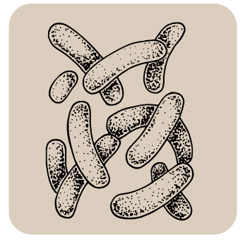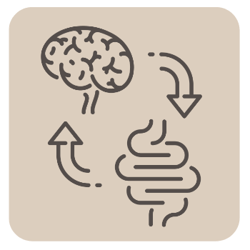
Do you ever feel a stomachache coming your way and just know something is off? Did you ever wonder how that feeling of being "off" relates to the rest of your body? Well, believe it or not, your gut may have more influence over your well-being than you think! In fact, many experts refer to the gut as the engine of our body – responsible for sending signals throughout our bodies. This blog post dives into how this complex system works and what exactly goes on in there. From digestion to immunity, we'll explore all aspects of why taking care of your gut health is essential for both short-term comfort and long-term wellness. Read on!
1. What is the Gut and How Does it WorkYour gut is the entire digestive system, including your esophagus, stomach, small and large intestines, and rectum. Your gut receives food, breaks it down, and absorbs nutrients and water before getting rid of waste. The gut also houses trillions of microbes, including bacteria, viruses, fungi, and other organisms, collectively known as the microbiome. The microbiome helps to keep your gut healthy, regulating important processes in your body, such as immunity, inflammation, mood, and sleep. |
|
2. The Importance of a Healthy GutA healthy gut is essential for good overall health. If your gut microbiome is balanced, your digestive system works well, and you’re able to absorb the nutrients you need for optimal health. When it’s damaged or compromised, it can lead to a host of health problems, including an increased risk of chronic diseases such as obesity, diabetes, heart disease, autoimmune disorders, and even mental health problems. The gut-brain connection is a prime example of how gut health influences your well-being. The gut and brain are closely connected through nerves, hormones, and immune system signals. This means that gut problems can cause mental health symptoms such as depression, anxiety, and brain fog. |
|
3. How to Keep Your Gut HealthyThe good news is that you can take steps to support your gut health. Some lifestyle modifications that promote good digestive health include eating a balanced and varied diet, reducing processed and sugary foods, staying hydrated, and getting enough fiber-rich foods such as fruits, vegetables, and whole grains. Additionally, regular exercise, stress reduction, and sufficient sleep can all positively impact your gut health. Consider adding gut-supportive supplements such as probiotics, prebiotics, digestive enzymes, or fiber to your routine as well. |
|
4. Signs of an Unhealthy GutIt’s important to recognize when your gut is not functioning optimally. Signs of an unhealthy gut include bloating, gas, constipation, diarrhea, heartburn, and abdominal pain. If you experience any of these symptoms regularly, it could be an indication of an underlying gut problem. In this case, visit a healthcare professional who can rule out any serious conditions and help you make the necessary changes for a healthy gut. |
|
|
A healthy gut microbiome regulates many important processes in your body and supports your overall well-being. But maintaining optimal gut health requires a combination of lifestyle modifications, such as a balanced diet rich in nutrients and fiber, regular exercise, stress reduction, and sufficient sleep, as well as gut-supportive supplements. Pay attention to your body’s digestive signals, and don’t hesitate to get help if your gut is not functioning well. Make it a priority to take care of your gut, and your overall health and quality of life will benefit greatly. Thanks for reading! :) |
|






